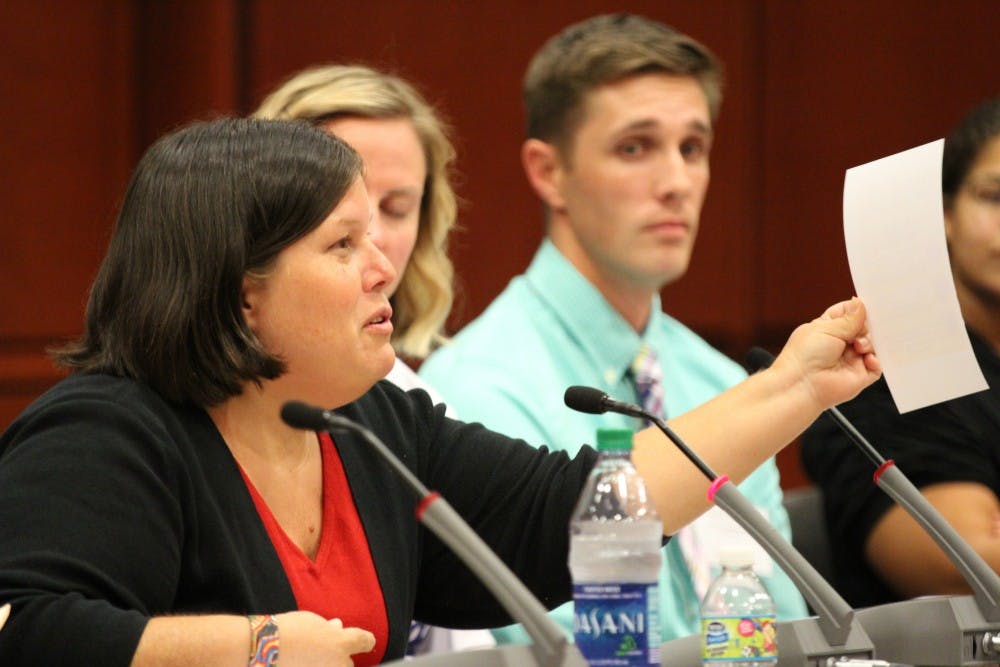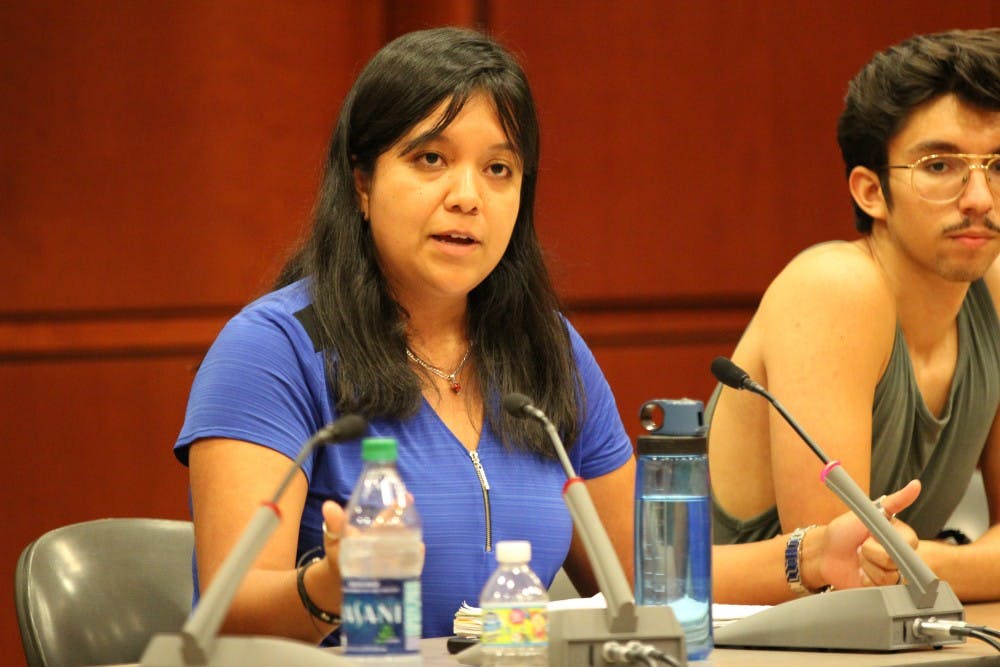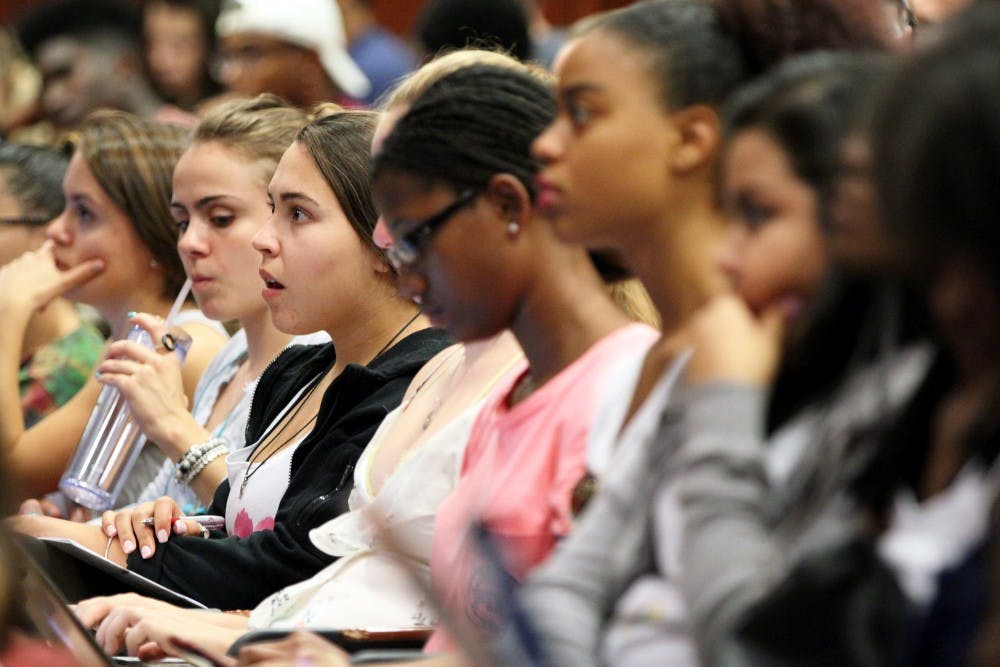Elon students and professors gathered in LaRose Digital Theater Sept. 18 to discuss the impacts of the stopping of Deferred Action for Childhood Arrivals (DACA). Every seat in the theater was filled as the crowd eagerly waited to hear from the panelists. Dozens of students sat on the floor, occupying any available space.
Jessica Carew, assistant professor of political science, moderated the discussion. The panelists included Vanessa Bravo, assistant professor of communications; Brandon Sheridan, assistant professor of economics; Heather Scavone, director of Humanitarian Immigration Law Clinic and Katie LaPlante, assistant director of counseling services.
The event was split up into two parts — the panelists discussing current events and taking questions from the audience, followed by two personal stories from DACA recipients, Carla and Jorge.
Carew began the first discussion by asking the panelists, “What are the most influential consequences from DACA?”
Bravo was the first to respond to the question.
“Five years ago we told 800,000 people to give the government personal information, now we say we can deport you," Bravo said.

Communications prof. Vanessa Bravo calls for students to take action in the DACA controversy [Photo by Jackie Pascale]
Scavone gave a more technical perspective. She explained how the government will now be forced to use their resources on immigrants who do not have criminal backgrounds, which has been a concern among government officials. Resources, Scavone said, should be focused on more important issues instead of clogging immigration courts.
The discussion highlighted the other areas DACA affects such as the economy, mental health and relationships with others. All of the panelists emphasized how important it is to stay aware of current events, and to act as activists in anyway possible.
“Use whatever privilege you have to fight for people who are about to lose theirs," Carew said in a closing statement for the panel.
In the second half of the event, Carla and Jorge talked about their personal struggles growing up in the United States as immigrants from Peru and Mexico.

Talking about her experience under DACA, Carla calls for recognition of undocumented people working towards rights. [Photo by Jackie Pascale]
They emphasized how Obama doesn’t deserve credit for establishing DACA, when it was really the result of undocumented immigrants pressuring him and other government representatives. The two move the pressure now to youth to change the current problem.
The event ended with a call to action for attendants to reach out to local representatives either by text, phone calls or emails in order to affect change.


